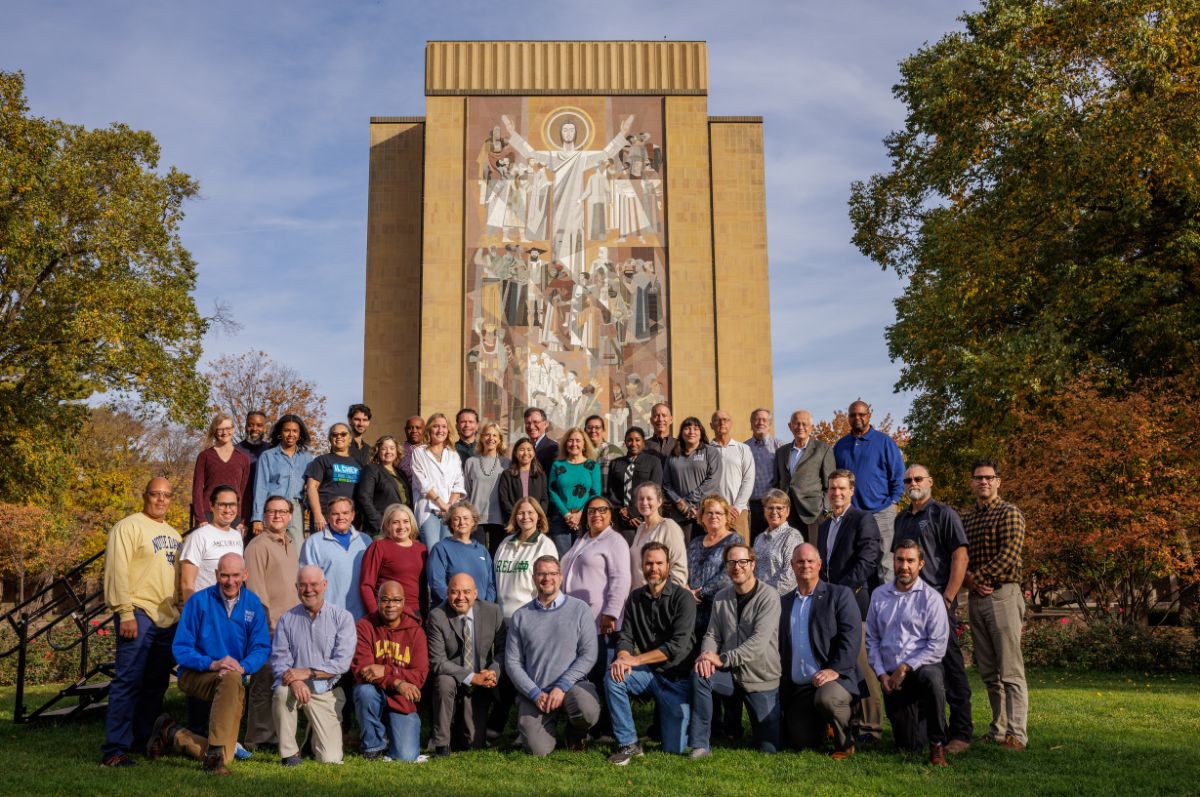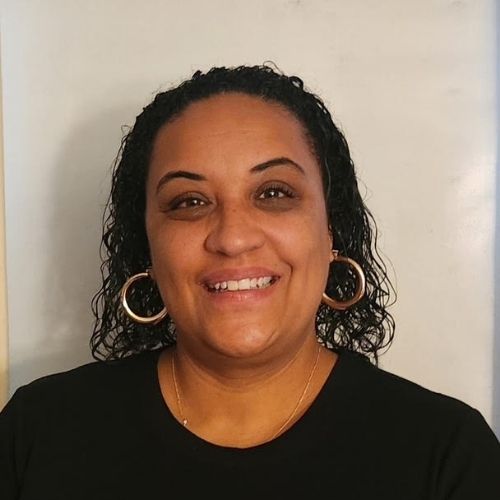Catholic Consortium for Higher Education in Prison Creates Mini Meets
In fall 2024, Mike Hebbeler, M.A., the Associate Director for the Institute for Social Concerns at the University of Notre Dame and Fr. Tom Curran, S.J., Coordinator for the Jesuit Prison Education Network, created the Catholic Consortium for Higher Education in Prison. Its primary goal: to bring together the program directors of the prison education programs in Catholic Colleges with Department of Corrections staff for a collective response to the "call for our shared humanity."
For their first activity, they gathered program directors from 19 Catholic colleges and Department of Corrections staff from 15 states on the campus of the University of Notre Dame. The two-day gathering on the campus resulted in an experience of shared humanity and solidarity in the work. The group expressed a great desire to grow the momentum.

A year later, the group continues to convene for the purpose of educating and forming one another in what one member calls "holy work." In-person gatherings will take place on a semiannual basis. In between these gatherings, members participate in "Mini Meets." This is where stakeholders in prison education from across the country discuss post-secondary education in correctional facilities.
 The first Mini Meet featured Shawn Tylutki, Ph.D., Assistant Education of the Michigan DOC (top), and Taniesha Spall, M.Ed., Education Administration Manager for the Commonwealth of the Pennsylvania DOC (bottom). Dr. Tylutki presented Michigan’s robust post-secondary education system, highlighting partnerships with 13 colleges (soon to be 14), serving 17 of 26 prisons. She emphasized the role of College Program Coordinators (CPCs), the implementation of secure books and efforts to replicate traditional college experiences inside prisons. Michigan’s Vocational Village model was lauded for preparing incarcerated individuals for employment, with plans to expand it to post-secondary programs. She also shared plans to convert an existing correctional facility into a dedicated college campus.
The first Mini Meet featured Shawn Tylutki, Ph.D., Assistant Education of the Michigan DOC (top), and Taniesha Spall, M.Ed., Education Administration Manager for the Commonwealth of the Pennsylvania DOC (bottom). Dr. Tylutki presented Michigan’s robust post-secondary education system, highlighting partnerships with 13 colleges (soon to be 14), serving 17 of 26 prisons. She emphasized the role of College Program Coordinators (CPCs), the implementation of secure books and efforts to replicate traditional college experiences inside prisons. Michigan’s Vocational Village model was lauded for preparing incarcerated individuals for employment, with plans to expand it to post-secondary programs. She also shared plans to convert an existing correctional facility into a dedicated college campus.
 Taniesha Spall discussed Pennsylvania’s approach, noting partnerships with institutions like Villanova, Penn. State, St. Joseph’s University and Eastern University. She emphasized the importance of communication, transparency and flexibility in breaking down silos between DOCs and higher education partners. Challenges include geographic barriers and limited technology infrastructure. She highlighted the role of credible messengers — formerly incarcerated individuals who return to share their success stories — as vital to inspiring current students.
Taniesha Spall discussed Pennsylvania’s approach, noting partnerships with institutions like Villanova, Penn. State, St. Joseph’s University and Eastern University. She emphasized the importance of communication, transparency and flexibility in breaking down silos between DOCs and higher education partners. Challenges include geographic barriers and limited technology infrastructure. She highlighted the role of credible messengers — formerly incarcerated individuals who return to share their success stories — as vital to inspiring current students.
The Q&A session surfaced discussion around employer engagement, student transfer policies, and eligibility criteria. Both speakers stressed the importance of collaboration, cultural change within corrections, and the need for early, coordinated planning when launching new programs. Invitations were extended by both speakers to visit the facilities and programs in their respective states.
Mini Meets are scheduled four times a year, two in the fall and two in the spring semesters. The next "Mini Meet" is set for December 4. It will feature Christina Rivers, Ph.D., associate professor of Political Science and Director of the DePaul Institute for Restorative Educational Engagement at DePaul University and Andrew Peck, Undersecretary of Public Safety for Criminal Justice for the Commonwealth of Massachusetts.
Would you like to donate to JPEN?
Visit the Jesuits of Central & Southern Province support page to learn more about how you can contribute.
To designate your gift to the Jesuit Prison Education Network, scroll down the webpage to "Donation information" to select a gift amount. Then scroll down to the "Designation" box, click on it, and select JPEN from the drop-down menu.